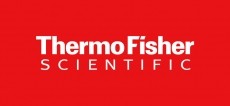Packing proteins onto chips
Germany's Protagen aimed at developing 'biochips' that can contain
thousands of functional proteins for use in drug discovery.
Protein biochips are finding uses in various applications, from clinical diagnostics, where only a few proteins may be required, through to drug discovery applications where it may be useful to screen compounds against large numbers of proteins. For example, biochips are often used to test the binding or interaction between a compound and an immobilised base of antibodies, proteins or peptides.
NextGen plans to increase the scope of the technology by combining its recently-introduced expressionfactory machine with a gene library developed by Protagen that contains 11,000 unique human genes.
For the two companies, this agreement will provide the protein content for biochips which, they say, is urgently required. This involves getting access to a gene library from which functional proteins can be expressed.
"When NextGen was founded, the need for content for protein biochips was a clear issue," according to Dr Kevin Auton, the company's chief executive.
In the early days of the protein biochip development, most of the attention was focused on the surface of the biochip and how to bind proteins. Once this was overcome, attention shifted to finding ways to express many hundreds of proteins reliably and at a low cost per protein.
NextGen's expressionfactory introduced last October, solved this obstacle by automating protein expression a single platform from "gene-to-protein." The system expresses each gene in parallel, using three related expression vectors, and grows each of the engineered cell lines in parallel. In the final stage, all three of the different versions of the protein are purified. This triple approach increases the chance of ending up with the target protein.
The protein production bottleneck for NextGen then shifted towards the need to access gene libraries, and the company hopes that the deal with Protagen overcomes this obstacle.
For Protagen, the deal gives it access to the expressionfactory system, which sits well with its own gene library business and effectively allows it start an on-demand protein expression service, something which it claims is unique in the industry.
"We plan to offer our research partners the ability to produce virtually any protein in research amounts within a few weeks. As we already have a qualified gene library, we do not have to stop and clone each gene before we begin expression," said Dr Christoph Hüls, Protagen's CEO.
The market for protein biochips, used in drug discovery and to test interactions between proteins, was worth around $76 million in 2001 but could experience tenfold growth to reach $700 million in 2006, according to market research firm BioInsights.










